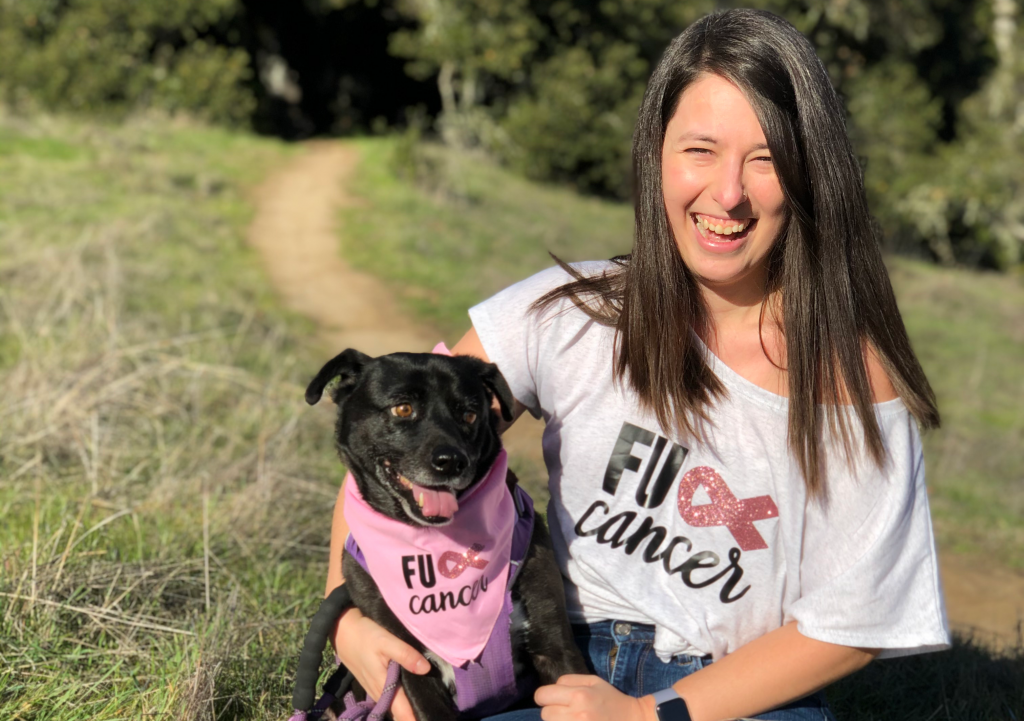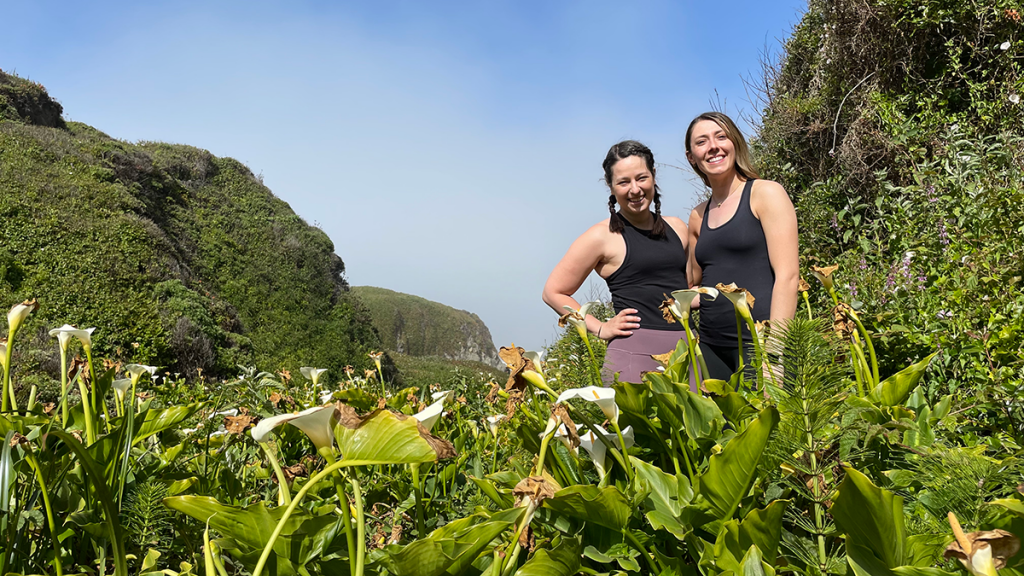
Chiara vs Cancer: Adapting to a New Life with Support That Makes Life Better
My Story
My name is Chiara Riga. I am 28 years old, a marketing operations manager, dog mom, lover of exercise and the outdoors, and in September of 2020, I was diagnosed with stage IV metastatic breast cancer. A year before my diagnosis, I had gone to the doctor to have a lump in my breast checked out and was told that I was “too young” for breast cancer and that it was a cyst. A year later, I went in to have the “cyst” drained and walked out with a cancer diagnosis. This came as quite a shock to me and my entire support system as I was in the best shape of my life when I was diagnosed and had no family history, genetic mutations, or any other significant risk factors.
The first few months of my diagnosis were incredibly difficult. Having to come to terms with your own mortality in your 20s is not something that anyone is prepared for, and adjusting to medically-induced menopause along with the other host of side effects has been physically challenging. But over the past year, I’ve learned a lot about my diagnosis. With the help of an amazing support system, I’ve begun to learn what my new life will look like. I’m focusing on advancing my career, being outdoors and exercising as much as possible, spending time with the people I love, and helping others understand that you’re never too young for cancer, as well as sharing how best to support their AYA loved ones who are diagnosed with cancer.
Support Tip #1: Be Authentic and Get Creative
I couldn’t have gotten to this place of acceptance of my new life without an incredible group of people around me. When I was first diagnosed, there was an outpouring of support from what felt like everyone I’ve ever met. But as most AYA cancer patients can probably relate to, many of those people slowly started to fade away as the novelty of my diagnosis wore off. Luckily though, most of my favorite people held strong in their support of me. While many people asked what they could do to help, my favorite ways that my friends have supported me were creative ways that they came up with themselves.
![]()

The one that sticks out the most was when my best friends, many of whom don’t know each other well, all came together and bought me a beautiful charm bracelet. They each put a charm on the bracelet that they felt represented our friendship, then they each wrote me a little letter explaining the charms and wishing me luck through my treatment. Since I was diagnosed when we were still in lockdown, they weren’t able to come with me to any appointments or be with me much, so the charm bracelet always brought a smile to my face when I looked at it during appointments.
Another really creative way that people supported me was when a group of colleagues created a signup list, and each week, one of them wrote me a beautiful card. They decided that instead of overwhelming me with support at the beginning and then fading away, they wanted to ensure that I felt loved and supported continually. It’s been a year, and the letters are still coming! They somehow always end up arriving during the hardest part of my week and always bring a smile to my face.
Support Tip #2: Anticipate and Be Specific
There have also been other times when people wanted to support me, but they came to me to ask how they could help, and I just didn’t have the capacity to let them know what I needed at that time. It often felt easier to just get myself what I needed rather than having to explain to someone else what was necessary. The best kind of supporters are the ones who learn to anticipate your needs and provide help without asking what you need first.
Some friends have come to me and said something like, “I’m bringing you ice cream. Do you prefer mint chocolate chip or Phish Food today?” so that I didn’t have to feel bad asking for what might make me feel better. Once I told my friend that I was having trouble eating because of my mouth sores and she stopped by later that day to drop off homemade bone broth, ice cream, and other treats that I could enjoy without irritating my mouth sores. This made such an impact because I was just struggling through the side effects, and she actively tried to alleviate some of the struggles.

Support Tip #3: Just Try!
My best advice to someone who wants to support an AYA through cancer treatment is to just try – don’t ask what they need, don’t put the onus on them to help you be supportive, just try something. And don’t be offended if the first thing you try doesn’t land with them at first; this is a whole new world that they’ve been thrust into, and you don’t have any understanding or context into what it’s like to live with a diagnosis like this, so you might get it wrong sometimes. But the important thing is to show that you’re there, you care, and you’re willing to do the work to get it right.
